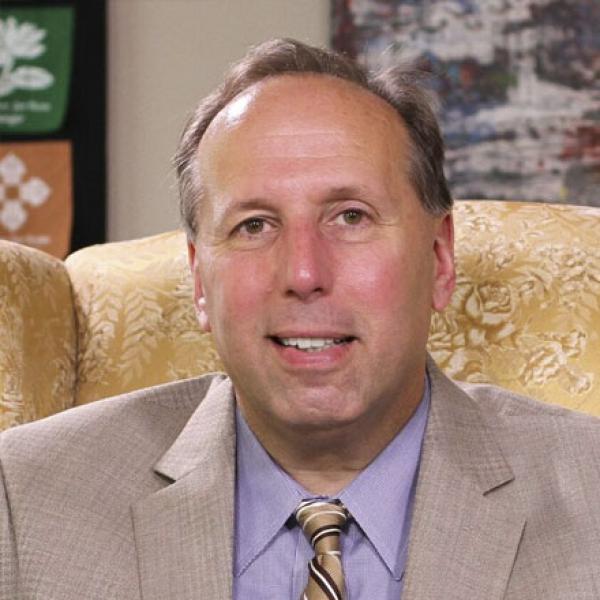Newswise — The Federation of State Physician Health Programs (FSPHP) is pleased to announce that Dr. Michael Baron’s two-year term as President began following the FSPHP’s 2024 Annual Member Business Meeting. Dr. Baron succeeds Dr. Scott Hambleton who will continue to serve FSPHP in a leadership role on its Board of Directors in the role of Past President for a two year term.
Dr. Michael Baron attained his Medical Degree, Masters in Public Health, and completed an internal medicine internship at Tulane University, School of Medicine. He completed his first residency in Anesthesiology at Washington University in St. Louis, School of Medicine and his Psychiatry training at Vanderbilt University, School of Medicine. He has maintained board certifications in Anesthesiology, Psychiatry, and Addiction Medicine.
He has practiced in the Nashville area since 1998 in a variety of settings including private practice, academic, and was Medical Director of a residential treatment center. He is a Clinical Assistant Professor at Vanderbilt University, School of Medicine. His specialty is chronic pain and addiction. In 2006, he published original research showing that high dose opioids increased chronic pain scores.
Dr. Baron was appointed to the Tennessee Board of Medical Examiners (BME) in 2010 and reappointed in 2015. He served as Chair of the Tennessee Controlled Substance Monitoring Database committee for 3 years. He helped write many different Tennessee Department of Health rules pertaining to the treatment of pain, prescribing controlled substances and addiction. Dr. Baron resigned from the Board of Medical Examiners and the Controlled Substance Monitoring Database committees in January 2017 to accept the Medical Director position of the Tennessee Medical Foundation – Physician Health Program.
“Serving as President of FSPHP is an immense privilege, I cannot think of a more critical priority than supporting the health and well-being of health care professionals.”
During his term, Dr. Baron pledges to further advance and evolve the FSPHP in response to the needs of its member Physician Health Programs (PHPs) and stakeholders, and aims to achieve the following goals:
- Launch the FSPHP’s Performance Enhancement and Effectiveness Program (PEER™) designed to offer our Health Professional Programs and other safety sensitive professional health programs a tool for optimizing performance and effectiveness in alignment with best practices among PHPs.
- Launch the FSPHP’s Evaluation and Treatment Accreditation (FSPHP-ETA™) designed to recognize the quality of evaluation and treatment services that specialize in the care of medical students residents, career physicians, and other worders in safety -sensitive occupational roles
- Reduce stigma and bolster confidentiality creating a pathway for healthcare professionals at risk of substance use disorders and mental health illness to seek treatment and return to practice without fear or discrimination.
- Raise awareness of the resources of Healthcare Professional Programs as a recognized resource in each state by building relationships with national organizations to elevate the understanding of PHPS.
- Support the onboard of the first FSPHP Chief Medical Officer, Dr. Chris Bundy, an FSPHP Past President and Executive Medical Director of the Washington Physicians Health Program, adding invaluable leadership to our mission.
About FSPHP: The FSPHP evolved over 30 years ago from initiatives taken by the American Medical Association, the Federation of State Medical Boards, and state medical societies. Physician Health Programs (PHPs) serve as a safe, confidential resource for the profession focusing on outreach, education, and health monitoring for physicians at risk for impairment. Today, nearly every state has developed a PHP that operates within the parameters of state regulation and legislation.
PHPs have extensive expertise in monitoring and managing safety-sensitive professionals, including physicians who have recovered from a substance use disorder. Studies that review the long-term model of PHPs confirm physician recovery rates are markedly higher than the general population—even when extended into 5 years or more. One study reports that malpractice risk for those who complete a PHP is lower than for physicians practicing medicine who have never been followed by PHP monitoring. More articles featuring the PHP model, including FSPHP member testimonials and PHP participant stories can be reviewed here: PHP Featured Articles
The FSPHP is a non-profit 501c3 professional membership association with elected officers and an elected Board of Directors. FSPHP has the largest membership in history with 50 State Physician Health Program Members, and 315 total members of the association. More information about FSPHP can be found here www.fsphp.org.

